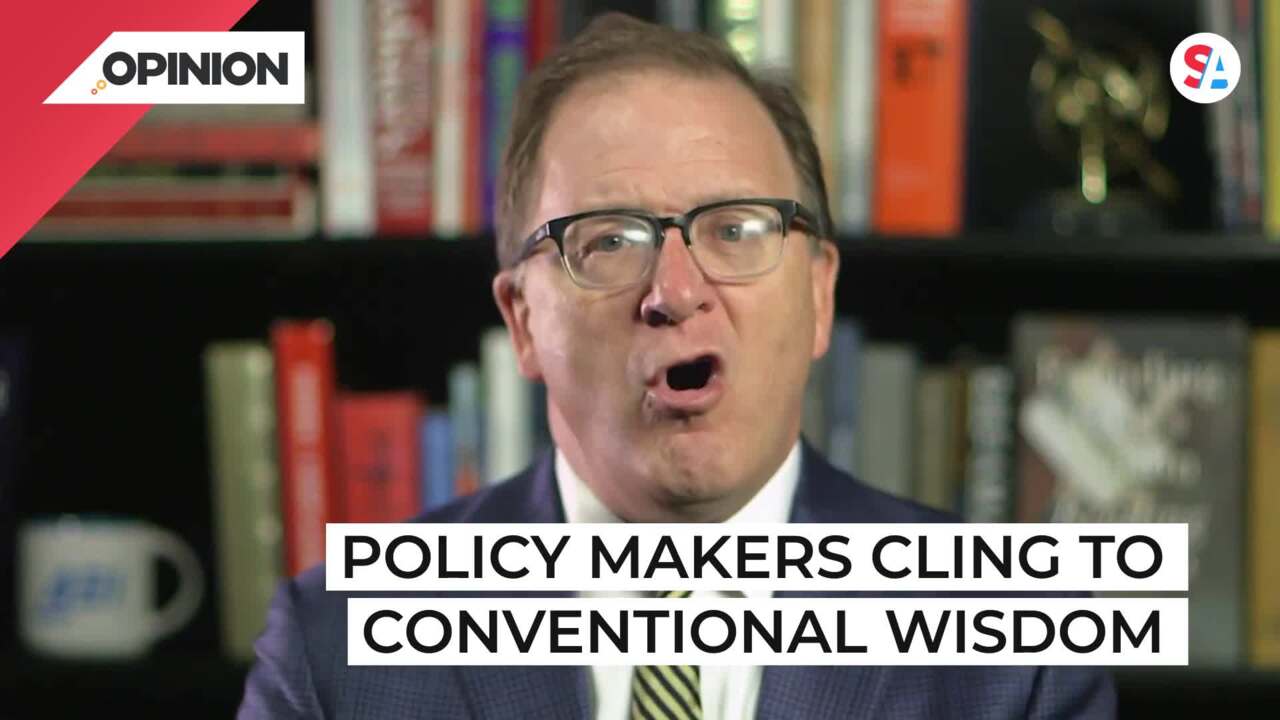
Commentary
-
Our commentary partners will help you reach your own conclusions on complex topics.
When great minds gather to address America’s problems in a new way, I think that’s a reason to be optimistic about the future of our country.
That’s why I want to tell you about an important conference that’s going to happen in Dallas this May.
In just a few weeks, distinguished scholars and leaders will gather at Dallas’s Old Parkland campus to reexamine the problems of social, racial, and economic inequality in America.
This gathering will reconvene the 1980 Fairmont Conference. There, the economist Thomas Sowell brought together thinkers and leaders to explore alternative solutions to the problems of poverty and racial inequality – alternative approaches to the conventional wisdom being pushed by the popular media, leading academics, and liberal elites.
In the decades leading up to the Fairmont conference, Black Americans had made great strides in reducing inequality and achieving prosperity. The Civil Rights movement had successfully reduced and eliminated the barriers to legal equality. But by 1980, the social and economic progress of Black Americans had slowed, or even stalled.
Sowell, an economist at Stanford, saw that conventional wisdom about racial inequality did not actually lead to policies that helped Black people move up. On the contrary, Black Americans suffered from what he called “the counterproductive results from noble intentions.”
Policies that encouraged dependency on government led to lower employment, higher poverty, weaker families, and soaring crime rates.
Sowell didn’t organize the Fairmont Conference because he had solutions to these problems – far from it. The most – and perhaps the only important thing for him was to create, for the very first time, a forum for individuals who thought about racial inequality in an unconventional way so they could meet, converse, and develop their ideas.
As Sowell said in his opening remarks, the mission of the conference was “to explore alternatives, not to create a new orthodoxy with its own messiahs and its own excommunications of those who dare to think for themselves.”
In the decades that followed Fairmont, no similar forum came into existence. But the need for it has only grown. We’ve seen successive generations of well-intentioned policymakers cling to conventional wisdom, all the while worsening those “counterproductive results,” like rising rates of non-marital births.
Finally, inspiration struck Old Parkland’s four organizers – Glenn Loury, Jason Riley, Ian Rowe, and Shelby Steele – that it was time to reconvene Fairmont. Each of them is worth a little learning about.
Professor Glenn Loury became the first Black professor of economics to earn tenure at Harvard. Now a professor at Brown, he received the 2022 Bradley Prize, specifically for his efforts to promote viewpoint diversity in academia.
Jason Riley writes a column for the Wall Street Journal and has written several books, including Maverick: A Biography of Thomas Sowell and Please Stop Helping Us: How Liberals Make It Harder for Blacks to Succeed.
Ian Rowe built a network of charter schools in New York City and is now working on launching another. His book, Agency: The Four Point Plan (F.R.E.E.) for ALL Children to Overcome the Victimhood Narrative and Discover Their Pathway to Power, is coming out on May 16th.
Dr. Shelby Steele is a scholar of race, multiculturalism, and affirmative action. He has received both the National Humanities Medal and an Emmy Award for his work on his documentary, Seven Days in Bensonhurst. And he’s written several books, most notably The Content of Our Character: A New Vision of Race in America.
Together, these four have assembled an extraordinary roster of scholars, practitioners, and leaders to think anew about problems we still have not solved for all of our people.
Leaders from a wide range of backgrounds – such as Roland Fryer, Ayaan Hirsi Ali, Janice Rogers Brown, and Robert Woodson – will all be speaking on panels or delivering speeches.
Conversations will tackle topics ranging from family structure and culture, to the affirmative action debate, to advice for young civil society leaders.
All of these conversations will explore how the landscape has shifted for Black Americans since 1980 and how individual communities and public policies can help more Black people, and more people of all races, achieve the American Dream.
Now, I am not sure what ideas or future projects may come out of the Old Parkland Conference. But I do believe that there’s no better way to produce good ideas than to bring together brilliant individuals and get them talking.
-
Affirmative action ruling consistent with struggle against US racist past
When the Supreme Court struck down affirmative action programs at the University of North Carolina and Harvard, conservatives celebrated the decision, hailing it as a victory for a “colorblind” interpretation of the Constitution. Former President Donald Trump praised the ruling as a “great day for America.” Democrats, on the other hand, criticized the decision, arguing…
-
End of pandemic SNAP benefits a chance to improve food program
Millions of struggling American families in 32 states are now receiving less federal aid to buy food as the emergency funding for the SNAP food stamps program has expired. The emergency allotment, spurred by the COVID-19 outbreak, boosted the money that recipients received by at least $95 per month from SNAP, which stands for “supplemental…
-
Census data paints an inaccurate picture of inequality in America
The U.S. Census Bureau is a nonpartisan government agency, responsible for not only determining how many representatives each state will have in Congress for the next 10 years, but also for collecting income data. By asking about income, the Bureau’s intent is to “help communities enroll eligible families in programs designed to assist them.” But…
-
Elites have lost the trust and confidence of Americans
The Cambridge Dictionary defines the liberal elite as “a group of people with education, money, and other advantages, often living in cities, who have liberal political views and are seen as not understanding the problems and views of ordinary people.” Former President Donald Trump’s war on elites was central to his 2016 campaign and could be weaponized again should he run in 2024. Straight Arrow News…
-
American men need to start taking more personal responsibility
Some members of the Republican party, such as former President Donald Trump and Sen. Josh Hawley (R-MO), blame Democrats for starting a war against American men. These voices want government action taken to protect men from policies meant to undermine their roles in society. But is government intervention really the answer? Straight Arrow News contributor Robert…
Latest Opinions
-
 U.S. Department of Defense
U.S. Department of Defense
Congress still trying to figure out how to reduce wasteful military spending
-
 DVIDS
DVIDS
US Navy, Air Force making waves with new weapons at RIMPAC
-
 Getty Images
Getty Images
Israeli PM Netanyahu meets with Trump at Mar-a-Lago
-
 Getty Images
Getty Images
Growing US nuclear power resurgence reaches the nation’s heartland
-
 Getty Images
Getty Images
Beer from the sun, other solar thermal projects get government funding
Popular Opinions
-
In addition to the facts, we believe it’s vital to hear perspectives from all sides of the political spectrum.


